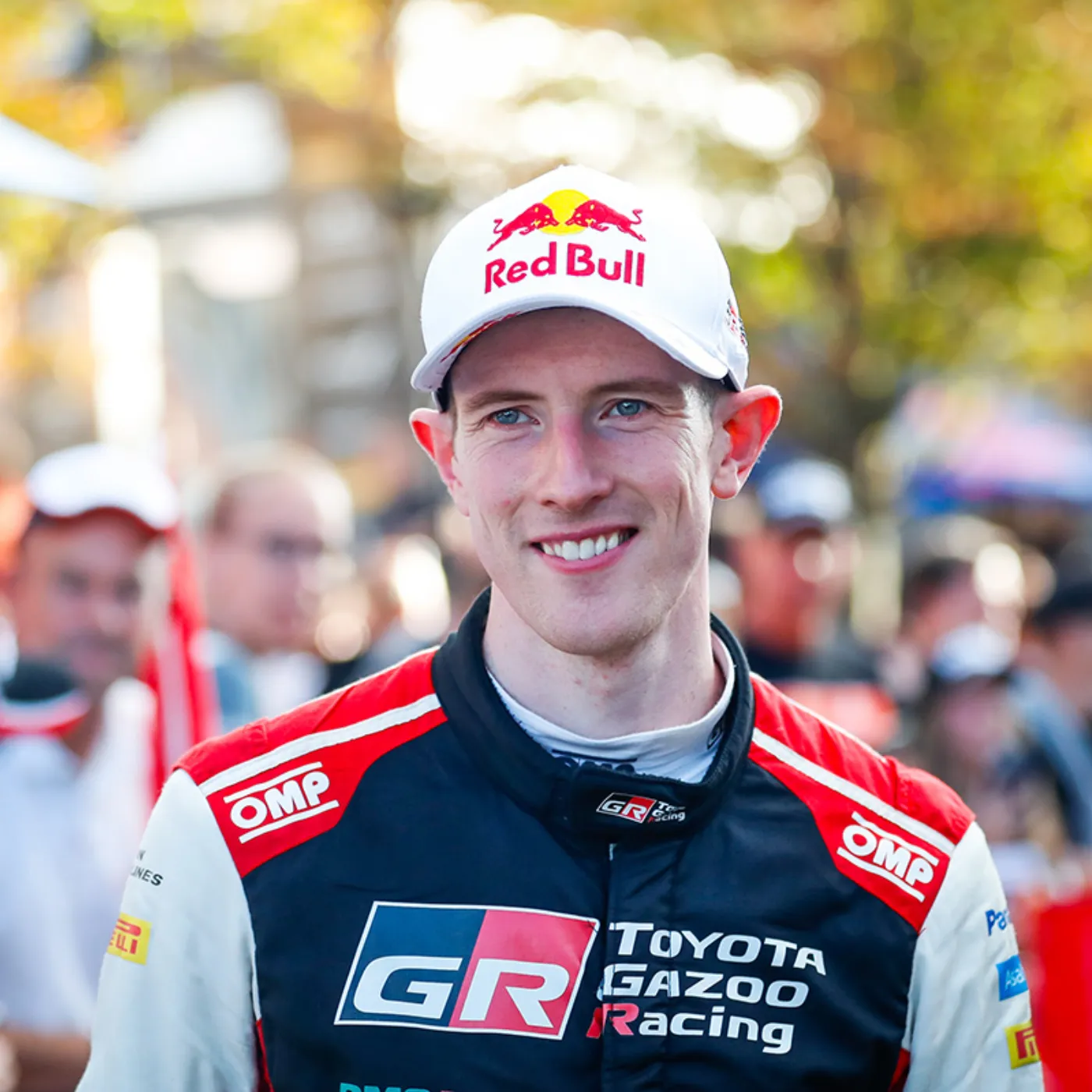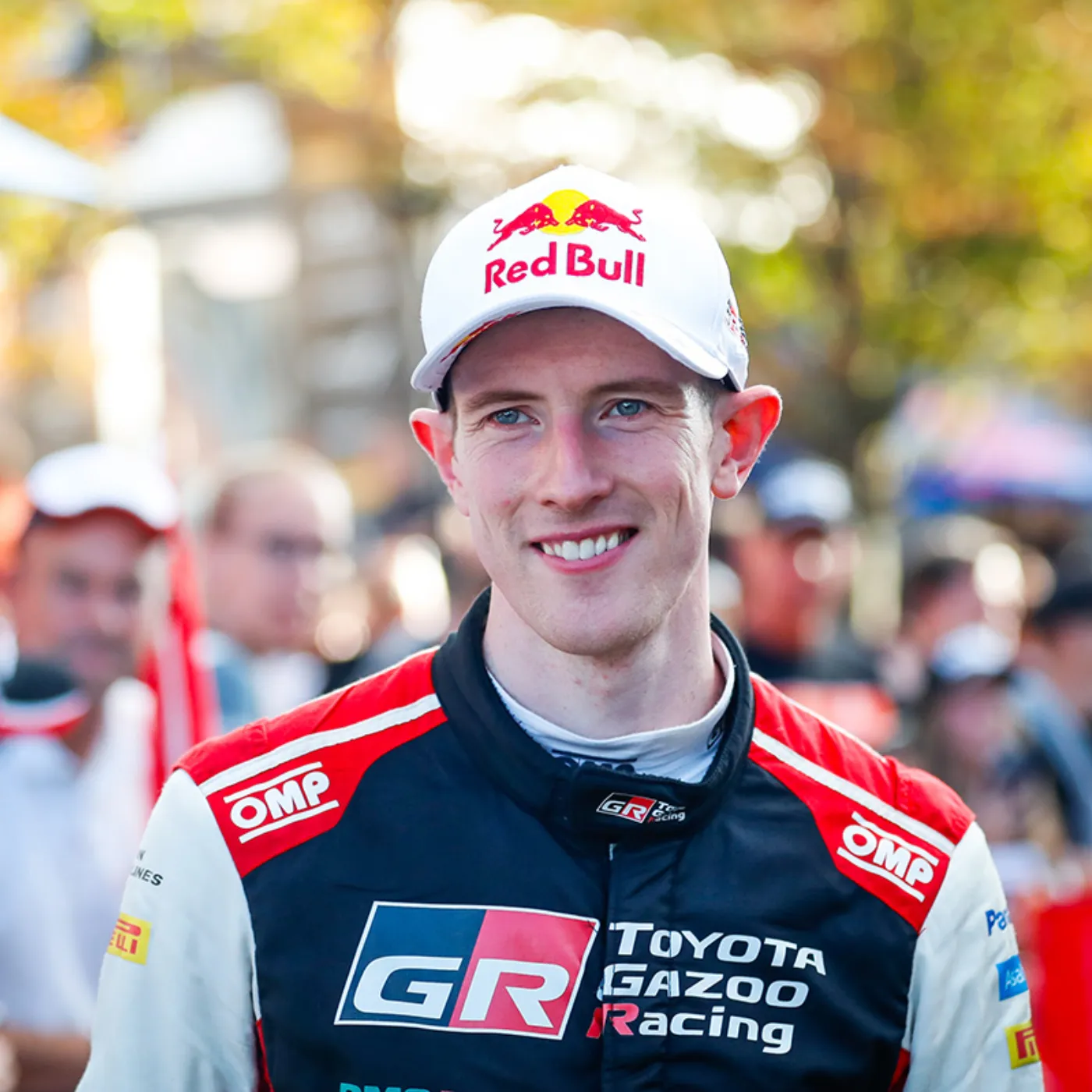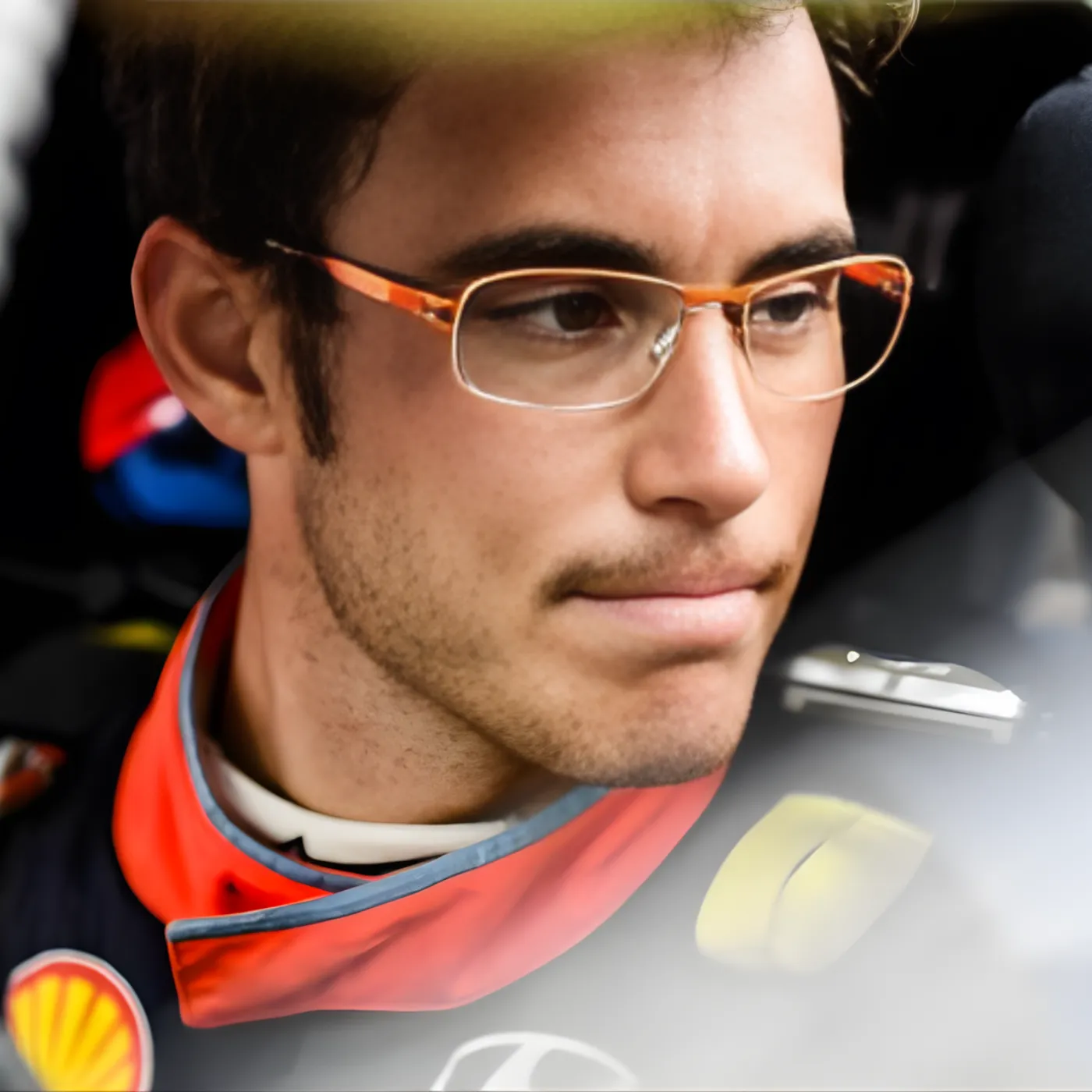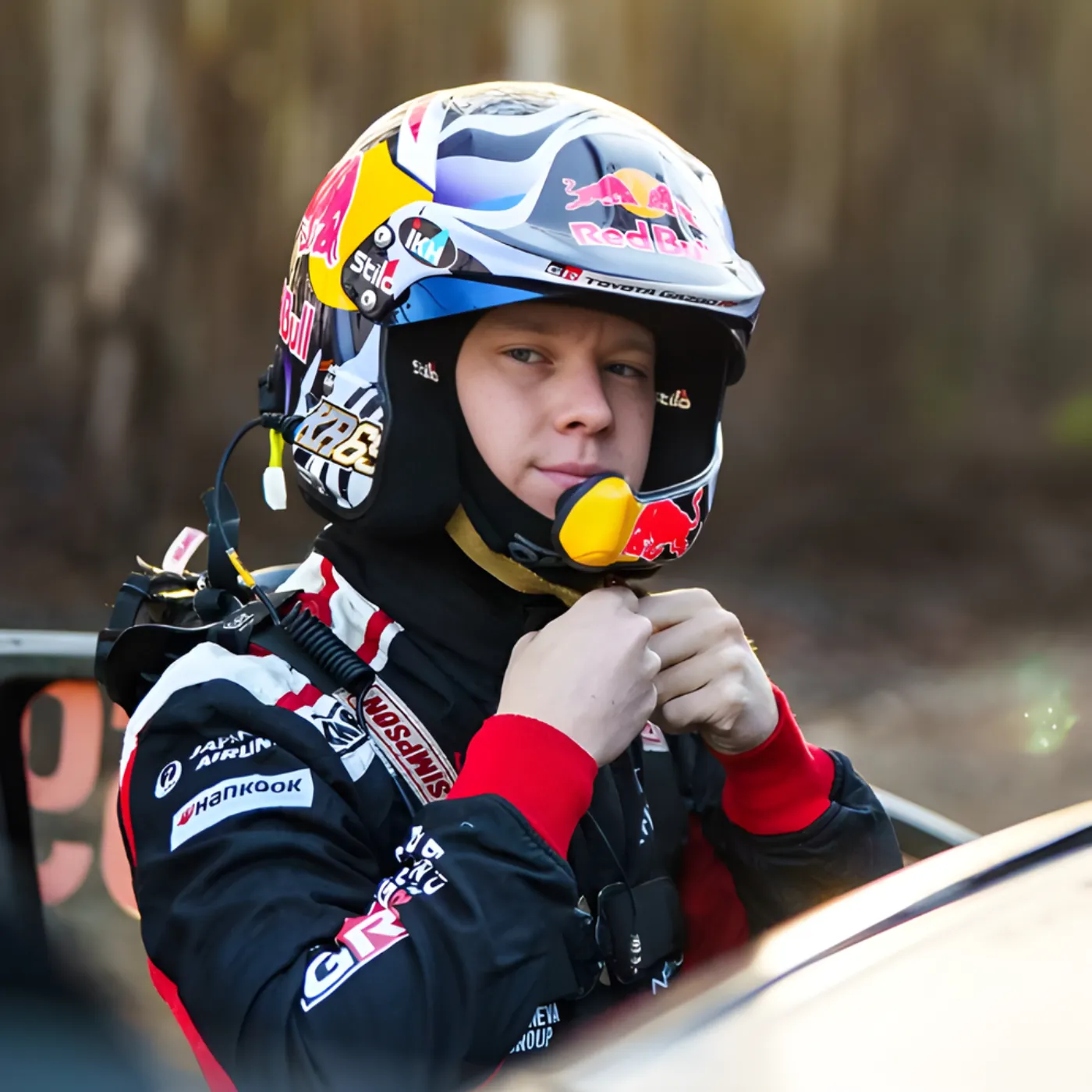

“He Had It All…” — The Tragic Twist That Stopped Elfyn Evans From Becoming Champion
When the Finish Line Slipped Away
The air was cold, the stage was slick, and the championship was on the line. A nation watched. A sport held its breath. And for a few cruel, heartbreaking seconds, time stopped entirely for Elfyn Evans. He had done everything right all season. He’d taken calculated risks, shown unmatched discipline under pressure, and outpaced rivals who once towered over him. He had the momentum. He had the machine. He had the will. But as his Toyota Yaris snapped sideways on a snowy bend in Monza, the title slipped away in a moment so brief that it barely lasted longer than a heartbeat—and yet it was long enough to change his entire career.
That moment was not just a crash. It was a culmination. The unraveling of years of sacrifice, patience, and silent suffering. And when the cameras captured him standing alone in the snowfall, waiting to warn his teammate Sébastien Ogier of the danger ahead, the image etched itself into the collective soul of the rally world. Here stood a man who had everything it took to become champion—speed, talent, maturity, even humility—but who had once again been betrayed by the very sport he’d dedicated his life to.

“He had it all…” they whispered. Commentators. Fans. Former drivers. They said it not out of pity but out of aching disbelief. Because if ever a man deserved the title that year, it was Elfyn Evans. But rallying, perhaps more than any form of motorsport, has no memory, no mercy, and no fairness. It doesn’t reward the deserving. It rewards only those who survive every twist of fate, every gust of snow, and every millisecond of risk. And on that one corner, in that one instant, fate had turned its back on him.
The story of Elfyn Evans is not one of failure. It is one of impossible nearness. Of a driver who made it to the edge of immortality multiple times, only to be pulled back by forces no steering correction could counter, no co-driver could anticipate, and no strategy could escape. It is the story of a nearly man who, in truth, should already have been crowned—not once, but twice.
The Quiet Ascent of a Silent Warrior
There was never anything flamboyant about Elfyn Evans. He didn’t burst onto the scene like a firework. He emerged quietly, patiently, like a shadow learning to move in daylight. The son of former rally driver Gwyndaf Evans, Elfyn had the pedigree, yes—but he never leaned on his surname. He carved out his own path, brick by brick, stage by stage, often out of the limelight. While others demanded attention with flash and fury, Evans built his reputation on consistency, composure, and a devastating ability to deliver under pressure.
He wasn’t a social media darling or a tabloid headline. He was something much rarer—a driver who let the stopwatch speak for him. And speak it did.
After showing flashes of brilliance early in his career with M-Sport, it wasn’t until he joined Toyota that the world saw what he was truly capable of. Suddenly, the man who had long hovered in the shadows was a title contender—not in theory, but in reality. He was taking wins in elite company. He was beating Ogier, Tanak, and Neuville. And he was doing it not with wild aggression, but with laser precision. He didn’t just go fast—he went smart. He managed tires better. He read the road better. He treated every rally not like a battle, but like a game of chess where every turn had to serve a greater strategy.
In 2020, he had the world at his feet. One hand already on the trophy. And then Monza happened.
In 2021, he came back even stronger. More determined. More focused. But again, it slipped away—this time through the sheer genius of a final campaign by Sébastien Ogier, who turned his last full-time season into yet another title.
In both seasons, Evans wasn’t outclassed. He was outlasted. And that may be the cruelest fate of all. Because his performances were those of a champion. His mindset was that of a champion. The margins were razor-thin. But in rallying, razor-thin is the width of heartbreak.
What makes his story more tragic is how little of it is about failure. When he loses, it’s never spectacular. It’s quiet. Professional. Almost polite. And maybe that’s why the pain of it runs so deep—because there’s never been a villain in his story. Only the cold indifference of fate.
A Legacy of Grace and the One Thing Missing
In a sport that thrives on drama, danger, and dominance, Elfyn Evans has always carried himself differently. There’s a quiet dignity to the way he speaks, the way he accepts defeat, and the way he refuses to lash out when lesser men might scream. He doesn’t blame luck, or conditions, or rivals. He absorbs disappointment like a stone absorbs rain—without protest, without spectacle.
But if you look closer, you can see it in his eyes. The way he looks off to the side when asked about missed opportunities. The way his voice tightens ever so slightly when the word “champion” is brought up. The scars are there. Not physical, but emotional. They’re the kind that come from knowing you’ve done everything right and still come up short.
And now, time is no longer his friend.

The WRC grid is shifting. A new generation is rising—young, wild, and hungry. Kalle Rovanperä, barely into his twenties, has already rewritten the sport’s history books. Drivers like Takamoto Katsuta and Oliver Solberg are building their futures with fearless speed and big personalities. Evans, still just 35, is now the veteran. Still fast. Still relevant. But the window is no longer wide open.
And yet, for many fans, Elfyn Evans already is a champion—even if the trophy cabinet doesn’t say so.
Because there’s a rare kind of greatness that isn’t measured in titles. It’s measured in character. In resilience. In the ability to carry the weight of nearly—again and again—and still return stronger. That kind of greatness doesn’t fade with time. It deepens. It earns respect. It shapes legacy.
But even so… the absence of that one title haunts the story.
You can feel it in every service park. In every commentator’s voice. In every cheer that greets him when he walks past fans who know, he should’ve had it by now.
And that “should’ve” hangs in the air like fog on a Welsh hillside.
Because “almost” doesn’t get remembered in the record books.
But in the hearts of those who’ve watched him battle, endure, and persevere, Elfyn Evans has already etched his name among the greats.


















